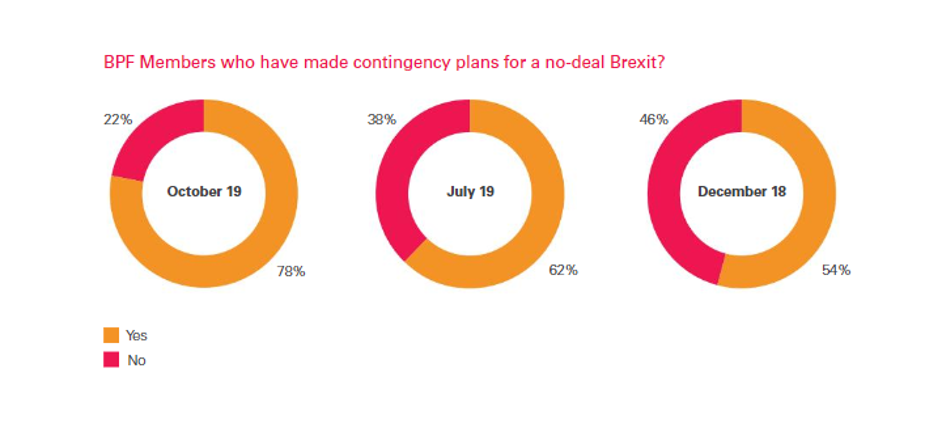
The British Plastics Federation (BPF) has published a practical guide to help plastics companies prepare for Brexit. Preparing for Brexit: Practical Guidance for the Plastics Industry covers the effect on REACH and other regulations on plastic firms, rules of origin, CE marking and UK mark, plastic recyclers and Brexit, and essential actions businesses should take. The publication follows a recent survey of BPF members about Brexit, which found that 78% of companies have made contingency plans in case there is a no-deal Brexit. This is a increase since December 2018, when only 54% of companies had, the BFP says.
The survey also found that the areas that will have the biggest impact on businesses in the case of a no-deal Brexit are: tariffs (with 61% saying they will have either a ‘high’ or ‘fairly high’ impact), border delays (with 72% saying they will have either a ‘high’ or ‘fairly high’ impact), and changes to customs and VAT procedures (with 55% saying they will have either a ‘high’ or ‘fairly high’ impact).
According to the survey, when asked what they considered the best option was for their business, 4% of respondents wanted a no-deal Brexit, 41% wanted to leave with a deal and 55% wanted to remain in the EU.
The guide is available to download here while the results of the Brexit survey can viewed here.
‘Whilst the signs suggest that the majority of firms have taken some steps to prepare for a no-deal Brexit — a result the vast majority of firms clearly want to avoid — we have released this report to provide clear, accessible guidance to ensure all bases are covered when preparing for Brexit and we urge all plastics companies to make use of it,’ said BPF director general Philip Law.
This story uses material from the BFP, with editorial changes made by Materials Today. The views expressed in this article do not necessarily represent those of Elsevier.


